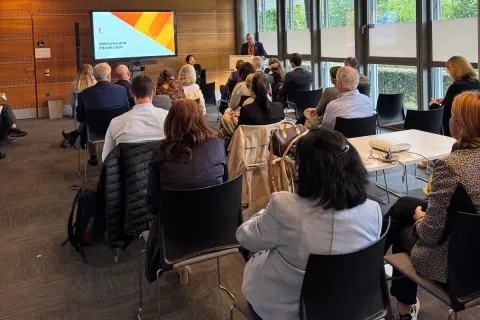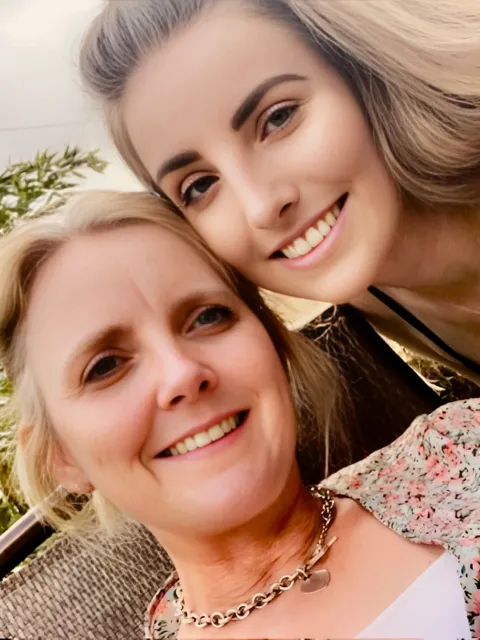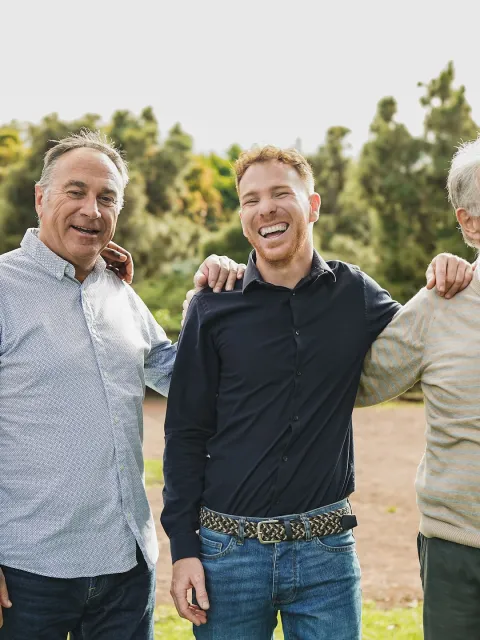ATOM Coalition celebrates three years of advancing access to cancer medicines
Marking three years of progress, UICC-led Access to Oncology Medicines (ATOM) Coalition reflects on key milestones expanding access to cancer medicines in low- and lower middle-income countries (LLMICs).

Cary Adams, CEO of UICC, speaking at the ATOM Coalition side event on 22 May 2025.
HIGHLIGHTS
- Expansion of access to innovative and generic medicines, including the first cancer medicine delivered through a public health-oriented voluntary license (nilotinib).
- Country-led capacity strengthening launched in Mongolia, El Salvador, and Zambia, with assessments and priority setting workshops completed.
- New tools and initiatives introduced, including a health financing diagnostic tool assessing national financing systems in Georgia, Kenya, Zambia and the Philippines.
The UICC-led ATOM Coalition celebrated three years since its launch in May 2022 at a reception alongside the World Health Assembly at UICC’s offices last week. The event was a moment to reflect on progress in expanding access to essential cancer medicines in LLMICs.
To date, patient reach through the ATOM Coalition sustainable access pathway partners has been significant, with 9 medicines delivered throughout 19 ATOM countries, reaching 1.9K people.
A year of impact
Over the past year, the ATOM Coalition made significant advances in delivering innovative and generic cancer medicines through sustainable access pathways, while deepening engagement with governments and partners in its pilot countries: Mongolia, El Salvador, and Zambia. In 2024, the Coalition also proudly expanded its partner base to 49 companies and organisations.
Increasing access through innovation and partnership
The Coalition expanded the NCDconnect platform, now offering over 30 cancer medicines in more than 75 formulations and nine medical devices and diagnostics. Among them is nilotinib—the first cancer medicine to be made available through a public health-oriented voluntary license, a global first made possible through the Medicines Patent Pool in collaboration with Novartis and facilitated by the Coalition. Finally, earlier this year the inclusion of Servier’s pegylated asparaginase was announced in collaboration with the Coalition. The Coalition continues to work closely with partners including IDA Foundation, The Max Foundation and more.
Strengthening national capacity to improve medicine access
The Coalition also made important progress in supporting national efforts to strengthen oncology medicine access systems. In March 2024, UICC signed the first Memorandum of Understanding (MoU) with Mongolia’s Ministry of Health (MoH), marking the launch of the Coalition’s country support programme. MoU’s have now also been signed with El Salvador and Zambia, and both countries have completed their situational assessments and prioritisation workshops with the support of UICC members ASAPRECAN and the Zambian Cancer Society. The Coalition’s capacity support model is designed to be country-led and adaptable and will continue to evolve as it is applied in more settings.
Delivering global public goods to enable sustainable cancer care
In its third year, the Coalition developed tools to help countries address foundational gaps in access. A health financing framework and diagnostic tool was created to assess national financing systems and identify sustainable pathways for funding oncology medicines and diagnostics. Findings from case studies in Georgia and Kenya are now published, with Zambia and the Philippines to be released in coming weeks. Additionally, to address infrastructure and equipment needs, the Coalition announced the creation of a Global Diagnostics Fund. A high-level assessment of diagnostic needs was completed, and efforts are now underway to mobilise resources for the Fund to help countries build robust diagnostic services that match the scale of their cancer burden.
Key milestones in country engagement
In early 2025, the Coalition reached a key milestone in its country engagement work: completing the pre-implementation phase in all three pilot countries. Stakeholder mapping, situational analyses, and capacity assessments have been completed in Mongolia, El Salvador, and Zambia, paving the way for country-led implementation of priority interventions.
“As we celebrate three years of the ATOM Coalition, we are inspired by the tangible results achieved through strategic collaboration with partners around the world,” said Dr Cary Adams, CEO of UICC. “From vital medicines reaching patients, to countries shaping their own access strategies, the Coalition is demonstrating what can be accomplished when global solidarity meets true partnership and national leadership.”
Looking ahead
As the ATOM Coalition enters its fourth year, it remains committed to its mission of reducing suffering and deaths caused by cancer in LLMICs through improved access to and use of critical cancer medicines.
By fostering collaboration among stakeholders, including governments, civil society, and the private sector, the Coalition aims to continue building sustainable systems ensuring equitable access to cancer care for all.
Last update
Thursday 05 June 2025
